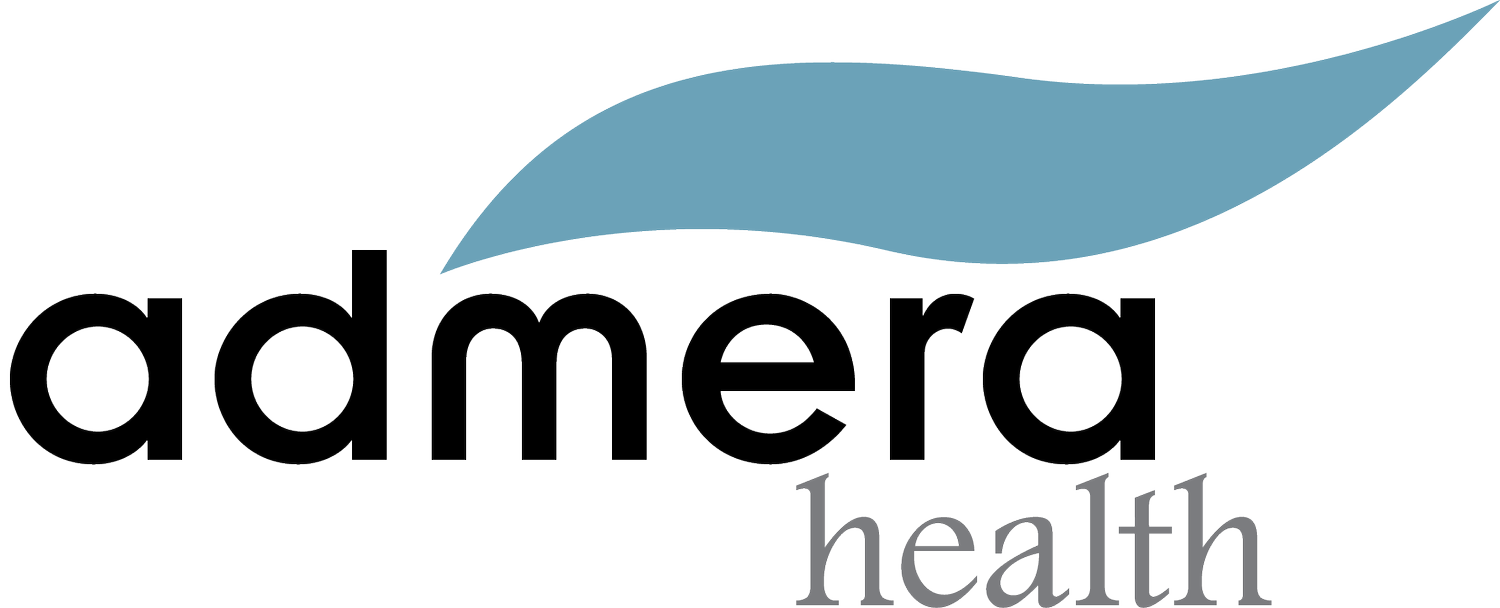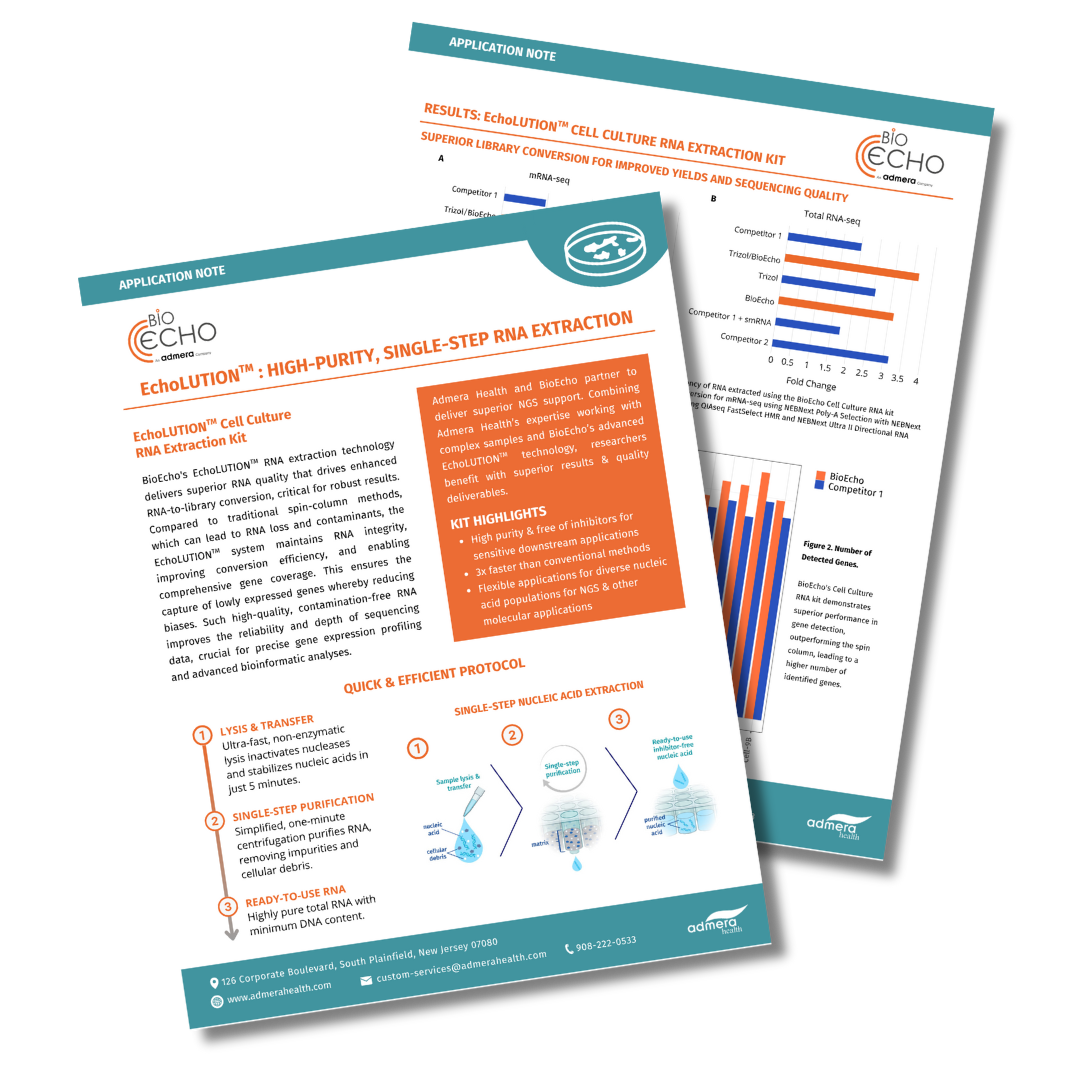
Total RNA-seq
A complete view of the transcriptome from coding to non-coding
What is Total RNA Sequencing?
Total RNA sequencing (total RNA-seq) is a powerful next-generation sequencing (NGS) technique for comprehensively analyzing the entire transcriptome of a cell or tissue. Unlike methods that focus only on messenger RNA (mRNA), total RNA-seq captures and sequences all RNA species, including ribosomal RNA (rRNA), transfer RNA (tRNA), long non-coding RNA (lncRNA), circular RNA (circRNA), and small RNAs.
This provides a more complete and unbiased view of gene expression and regulation. The process generally involves extracting total RNA, removing the highly abundant rRNA, and then converting the remaining RNA into a complementary DNA (cDNA) library for sequencing.
Total RNA-seq Applications
De novo transcriptome assembly from total RNA-seq is invaluable for studying species without a reference genome, allowing researchers to piece together an organism's transcripts from scratch
De Novo Transcriptome Assembly
Discover Novel Transcripts
& Isoforms
Identify new genes and transcripts and detect different splice isoforms, providing a comprehensive view of the transcriptome
Understanding Gene Function
in Agriculture
Characterize molecular pathways underlying plant and animal responses to biotic and abiotic stressors, enabling targeted strategies for crop improvement and livestock health management
Compare healthy vs. diseased cell transcriptomes to identify biomarkers for disease diagnosis and drug targets.
Drug Target Identification
Capture gene expression dynamics of host and pathogen within the same sample, unraveling insight into molecular mechanisms of infection and defense
Host-Pathogen Interactions
Study all RNA species, including non-coding RNA to unravel the complex molecular mechanisms underlying disease
Understand Disease Mechanisms
Optimized Workflows for All Sample Types
Flexible Input & Sample Compatibility
Cells
FFPE Samples
Fresh Frozen Tissue
Blood
Total RNA
Key Consideration for a Successful RNA-seq Experiment
The quality of your nucleic acid extraction is the most critical factor that dictates the success of your entire sequencing workflow. The sensitivity, accuracy, and overall data quality of your downstream analysis—including gene expression and variant calling—are all fundamentally dependent on the purity and integrity of your starting material. Even the most advanced sequencing technology cannot compensate for a low-quality or degraded RNA sample.
The BioEcho Difference with EchoLUTION™
Frequently Asked Questions
Sending samples? See our RNA sample submission guidelines for best practices on sample preparation, packaging, and shipment for the highest quality results.
-
We accept a wide variety of sample types, including FFPE, fresh frozen tissue, blood, cell pellets, and purified RNA. For purified RNA, we require a minimum concentration of 50 ng/µL in a total volume of 50 µL. We recommend providing a higher input amount for low-abundance transcripts. Please submit a completed sample submission form with your shipment.
See Sample Submission Guidelines here. -
If your sample does not meet our quality control standards at any point in the workflow, we will contact you immediately. We will discuss the specific failure point and provide options, which may include re-submitting the sample, proceeding with a modified workflow, or canceling the project. We believe in transparency and working with you to achieve the best possible outcome.
-
Our standard turnaround time is typically 10-15 business days, though this can vary depending on the sample type, project complexity, and required sequencing depth. Expedited services are available upon request. Please contact us for a detailed quote and timeline specific to your project.
-
Our workflows are designed to maximize data quality from start to finish. We use specialized protocols for challenging samples like FFPE to ensure high-quality RNA extraction. During library preparation, we use Unique Dual Indexes (UDIs) to minimize index hopping and Unique Molecular Identifiers (UMIs) to correct for PCR duplicates, ensuring accurate quantification. We also perform stringent quality control checks at every step to guarantee reliable and usable data.
-
Yes. We specialize in handling challenging and low-input samples, including FFPE, blood, fresh frozen tissue, and cell pellets. Our optimized workflows for FFPE samples include a high-yield extraction protocol with improved proteinase K digestion and DNase treatment to minimize DNA and rRNA contamination. This ensures a high success rate and provides the necessary input quality for robust downstream analysis.
-
Our bioinformatics services are comprehensive and customizable. For Bulk RNA-seq, we provide trimming and QC, mapping, counting, normalization, and differential expression analysis (DE). For projects involving non-model organisms, we offer de novo transcriptome assembly. Additional analysis options include alternative splicing detection, gene fusion analysis, and functional enrichment analysis (MA-plot, PCA, heatmaps, volcano plots, and GO enrichment).
Get the Most out of Your Study
Maximize your project’s potential with advanced analysis solutions. Our team of expert bioinformaticians curate pipelines tailored to your project’s experimental design.
See RNA-seq in Action
Admera Health provides comprehensive support for all projects, and delivers publication-ready data. Discover how researchers are using Admera Health to advance their Transcriptomics studies.











